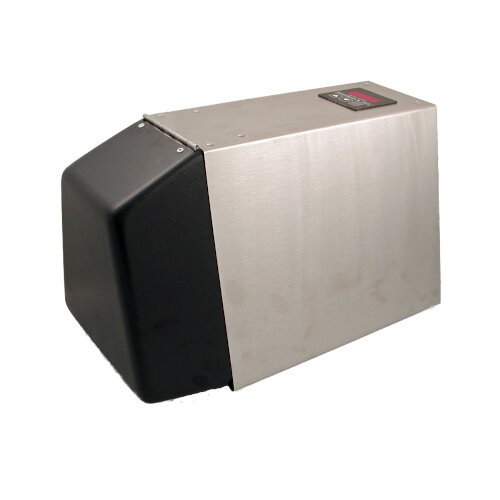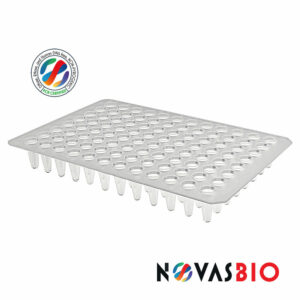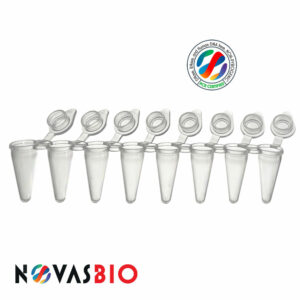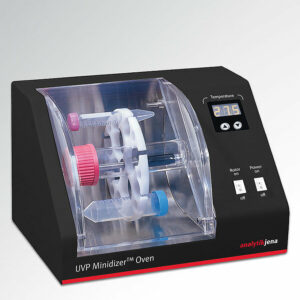The Mini-BeadBeater-16 disrupts microbial cells and plant and animal tissue by violently agitating four to sixteen 2 ml screw-cap microvials containing small glass, ceramic or steel beads and disruption buffer. Even resistant samples like yeast, spores or fibrous tissue are completely homogenized around 3 minutes in 0.1 to 1 ml of extraction medium. The non-foaming, aerosol-free method preserves enzymes and organelles. In the presence of nucleic acid extraction media such as phenol, Gu-SCN or a commercial kit solution, DNA and RNA are recovered in the highest possible yield. The method is ideal for PAGE, PCR applications and diagnostics using antibody or oligonucleotide probes. Because beads and vials are disposable, there are no cross-contamination concerns when homogenizing multiple samples.
The Mini-Beadbeater-16 can also be used for dry grinding. Steel beads are added to hard samples such as hair, bone, teeth, seeds and minerals and are completely powdered in 10-60 seconds. Softer materials such as biological tissue, rubber or plastics can also be powdered by first freezing the sample to liqN2 temperatures (a process called Cryo-grinding). Special break-resistant vials are highly recommended for dry- or cryo-grinding (See our XXTuff Polypropylene Microvials and Stainless Steel Microvials). The powdered material can be safely extracted with aqueous and most organic solvents in the same vial, thus simplifying recovery of the analytes.
Links to Selected Applications Using the Mini-Beadbeater
OPERATING INSTRUCTIONS: See http://www.biospec.com/instructions/minibeadbeater_16/. See also a short video showing the operation of the MBB-16 at https://www.youtube.com/watch?v=1YfzAef5hLg or watch below




